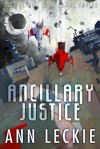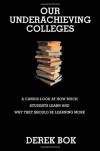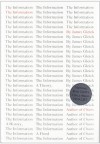Currently reading
McGlue
Knife Fight and Other Struggles
Far from the Tree: Parents, Children, and the Search for Identity
The Good Lord Bird
Ancillary Justice
Our Underachieving Colleges: A Candid Look at How Much Students Learn and Why They Should Be Learning More (New Edition)
Dissident Gardens
Nightmare Movies: Horror on Screen Since the 1960s
The Information: A History, a Theory, a Flood
Complete Novels
 Late in the novel, the central character ('60s radical & fugitive Jenny Shimada) imagines her way into the thoughts of a person affected by the SLA-analogue cadre of fugitives she's caretaking. She imagines Mr. Morton, in the middle of their fundraising robbery, turning in his glasses toward "a pretty young blond," but with the lenses revealing only a "watery, imprecise world," he doesn't recognize the gun in her hand.
Late in the novel, the central character ('60s radical & fugitive Jenny Shimada) imagines her way into the thoughts of a person affected by the SLA-analogue cadre of fugitives she's caretaking. She imagines Mr. Morton, in the middle of their fundraising robbery, turning in his glasses toward "a pretty young blond," but with the lenses revealing only a "watery, imprecise world," he doesn't recognize the gun in her hand.Choi's novel is an interrogation of the watery, imprecise political and historical realities which shape our identities and actions. Maybe "interrogation" is the wrong word--explication? Maybe even exaltation? Her characters (all fictional echoes of figures from the West Coast radical scene, particularly centered on the events of the Patty Hearst abduction) are afflicted by a false sense of perfect vision. They assume a clarity about their political beliefs and worldview that blinds them to the moral fuzziness of these ideals, of their selves and others, of the country. My favorite thing about the book is that it manages to blur our (my?) own orderly vision of the '60s and its politics, through an empathetic development of even the most cartoonishly obstinate characters (a doddering, bigoted old-money landowner in upstate New York; the swaggering, dimwitted guy bossing about the surviving remnants of the cadre). The book is the best kind of moral fiction in that it clearly limns the failings of action even as it refuses harsh judgment of any of the characters. Choi's vision is not blurry: from the precise, detailed evocation of land and event to her engagement with the mundane details of Jenny's internal consciousness (which, like the land described, slowly changes shape over the course of her history). Let's say she makes a case for the necessary watery imprecision of worldviews using a crystalline vision of the world she's written.
I also like the novel's structure. We know so much about these events and era--or, rather, assume we do--that it's hard to imagine seeing anything new. And yet I had no memory of Wendy Yoshimura, the woman buried in the news reports of Hearst's final capture; it is a crucial point, subtly developed through the novel, that our histories and stories are as much about forgetting as they are about recollection or preservation. (And it just hits me!: on the lam for her own crimes, Jenny is first found working in an old mansion, helping to 'preserve' and restore the joint to its old glories, as tours walk through.) The novel's structure is rather perfectly arranged to produce revelation, slowly teasing us to see what is there, rather than simply confirming what we already knew. (So, for instance, certain key details of Hearst's abduction do not emerge until late, late in the novel.)
This last point--as it also plays out in Choi's line-by-line style--might put some people off. In a novel full of people spouting theories and judgments about culture, race, class, America, violence, it might seem frustratingly or perplexingly detached. But as I noted above, I think Choi is skeptical of such clarities, and instead creates political and moral judgment through the steady accretion of detail, what one blurb called a very "fine-grained" attention to the way people live. It's a novel of ideas that emerge through the many (many, many) details of the events, ideas not shoved in your face like a gun but which only slowly come into focus, so that we're almost surprised. That can be frustrating for us readers, and challenging, and also lovely and compelling.












